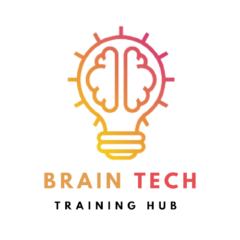After completing a BCA (Bachelor of Computer Applications) degree, the world of opportunities opens up. With a BCA, students gain a robust foundation in computer science, software development, and IT, making them eligible for various career paths. The seven best career options after BCA include pursuing an MBA, becoming a Data Scientist, exploring Digital Marketing, learning Product Management, entering the Blockchain Industry, becoming a Cyber Security Expert, and getting a Master of Computer Applications (MCA). This blog will explain these options in detail, helping you make an informed decision about which course is best after BCA for your career aspirations.
What is BCA?
BCA stands for Bachelor of Computer Applications, an undergraduate degree focusing on computer science fundamentals, software development, and IT. This program typically spans three to four years, depending on the institution and country. The comprehensive curriculum covers programming languages like Java, C++, and Python, along with database management, data structures, algorithms, software engineering, web development, networking, and computer security.
Why Choose a Course After BCA?
In today’s competitive job market, a BCA degree alone may not be sufficient for high-paying roles. Post-graduation or professional certification is essential to stand out. After BCA, choosing the right course ensures a well-established career in the technology industry, adapting to its ever-evolving landscape.
The Seven Best Career Options After BCA
1. Get an MBA (Master of Business Administration)
Why MBA?
- An MBA provides business acumen, management skills, and strategic thinking.
- Combines technical knowledge with business leadership.
- Opens doors to managerial and executive roles.
Courses to Consider:
- MBA in Information Technology.
- MBA in Business Analytics.
- MBA in Digital Marketing.
2. Become a Data Scientist
Why Data Science?
- High demand for data-driven decision-making.
- Lucrative career with opportunities in various sectors.
Skills and Courses:
- Learn Python, R, SQL, and machine learning.
- Consider courses from Coursera, edX, or university programs.
3. Become a Digital Marketer
Why Digital Marketing?
- Growth in online businesses and digital media.
- Creative and analytical field with diverse opportunities.
Key Areas to Focus:
- SEO, SEM, content marketing, and social media marketing.
- Certifications from Google, HubSpot, and other reputable platforms.
4. Learn Product Management
Why Product Management?
- Central role in developing and launching products.
- Combines technical, business, and leadership skills.
Courses to Consider:
- Product Management certifications from General Assembly or Pragmatic Institute.
- MBA with a focus on Product Management.
5. Enter the Blockchain Industry
Why Blockchain?
- Emerging technology with a high potential for growth.
- Opportunities in finance, supply chain, healthcare, and more.
Skills and Courses:
- Learn blockchain development, smart contracts, and decentralized applications.
- Courses from Coursera, Udemy, or specialized blockchain academies.
6. Become a Cyber Security Expert
Why Cyber Security?
- Increasing cyber threats and need for digital protection.
- High demand for cybersecurity professionals.
Certifications to Pursue:
- Certified Information Systems Security Professional (CISSP).
- Certified Ethical Hacker (CEH).
7. Get a Master of Computer Applications (MCA)
Why MCA?
- Advanced knowledge in computer science and applications.
- Specializations in various fields like software development, networking, and AI.
Program Details:
- Typically a two-year program.
- Focus on practical and theoretical aspects of computer applications.
Practical Experience and Industry Demand
Many BCA programs include internships or practical training, bridging the gap between theoretical learning and practical implementation. The demand for skilled IT professionals remains high, making BCA graduates sought after for their technical skills and adaptability to the ever-changing technology landscape.
Key Factors to Consider After BCA
Which Course to Choose?
- Determine your interests and career aspirations.
- Consider the industry demand and growth potential.
When to Pursue Further Education?
- Immediately after BCA or after gaining some work experience.
Where to Study?
- Choose reputable institutions offering quality education and industry exposure.
Who Should Pursue These Courses?
- Those passionate about technology and eager to advance their careers.
Why Are These Courses Important?
- They provide specialized knowledge and skills required for high-paying jobs.
Whether You Need Further Education?
- Essential for staying competitive and achieving career growth.
How to Choose the Right Path?
- Evaluate personal interests, market trends, and long-term career goals.
The Best Courses and Certifications After BCA
| Course/Career Path | Key Benefits | Recommended Institutions/Platforms |
|---|---|---|
| MBA | Business leadership, managerial roles | IIMs, Harvard Business School, Coursera |
| Data Science | High demand, lucrative career | Coursera, edX, universities |
| Digital Marketing | Creative field, diverse opportunities | Google, HubSpot, Udemy |
| Product Management | Central role in product development | General Assembly, Pragmatic Institute |
| Blockchain | Emerging technology, high growth potential | Coursera, Udemy, specialized academies |
| Cyber Security | High demand for digital protection | (ISC)², EC-Council |
| MCA | Advanced computer knowledge, specialized fields | Top universities offering MCA programs |
Conclusion
Choosing the right course after BCA is crucial for a successful and rewarding career. Whether you opt for an MBA, data science, digital marketing, product management, blockchain, cybersecurity, or an MCA, each path offers unique opportunities and growth potential. Consider your interests, industry trends, and long-term goals to make an informed decision.
If you want to know more about which course is best after BCA and want personalized guidance, contact us at BrainTech Hub. We are here to help you navigate your career path and achieve your professional aspirations.




